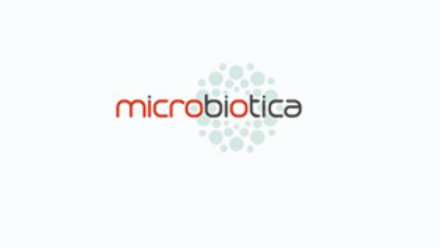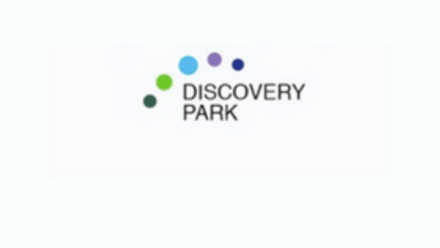Meet Dr Gianmarco Contino: Driving the future of precision oncology

An experienced clinician scientist and surgery consultant, Dr Gianmarco Contino brings deep expertise in gastrointestinal cancers and cancer genomics. At the University of Birmingham, his team integrates functional genomics, bioinformatics, and machine learning to pioneer new diagnostics and therapies in precision oncology. Now, as Translational Lead at PHTA, Gianmarco shares his ambitions for the role and how PHTA can help life sciences enterprises translate innovation into real-world impact.
Can you summarise your career so far? What inspired you to work in oncology and cancer genomics?
My journey into research began in the very first year of medical school in Rome, when I joined the Medical Genetics lab. That early exposure to the principles of inheritance, mutation, and molecular biology laid a strong foundation for what would become a lifelong commitment to understanding cancer through a genomic lens. I then trained as a surgical oncologist at the European Institute of Oncology in Milan and pursued a PhD in Translational Medicine supported by research fellowships at Harvard Medical School, Massachusetts General Hospital, University of Illinois at Chicago, and Imperial College London.
Later, I joined the University of Cambridge as a Clinical Lecturer, working with the Fitzgerald lab and the International Cancer Genome Consortium. My research focused on oesophageal cancer genomics, in particular in some fascinating mutations that reshape chromosomes and facilitate cancer progression by affecting large segments of the genome.
What inspired me most was the need I saw in the clinic for better, biology-driven cancer treatments. Oncology is complex but genomics enables us to understand, predict, and personalise therapy. The exponential growth of genomic technologies over the past decade has made it possible for us characterise cancers in ways that were unimaginable before, enabling truly personalised medicine. Precision oncology is no longer a distant goal – it’s becoming the new standard, and we now have the tools to match the right treatment to the right patient with unprecedented accuracy. That potential is what drew me into cancer genomics, and continues to motivate me today.
What brought you to the University of Birmingham and what do you like most about the city?
The University offered a unique opportunity to build a translational research programme on chromosomal instability and structural variation, which are key features of many aggressive cancers. The collaborative ecosystem between academia, clinical services, and national genomics infrastructure made it a natural fit. It has a glorious engineering legacy that is still reflected today, from its historic industrial infrastructure to ongoing innovation in technology and design.
Birmingham is a diverse, welcoming city with a strong research culture and a vibrant community. The campus hosts its own art collection at the Barber Institute and offers a world-class musical scene both on campus and in the city, particularly through its renowned Symphony Orchestra. I appreciate the balance it offers between high-impact research opportunities and a grounded, accessible quality of life. The city is well connected, with easy access to many UK destinations, and offers fantastic opportunities for cycling.
What experience do you have working with industry?
I’ve collaborated with industry partners on developing gene panels, integrating mutational signatures into diagnostics, and translating genomic data into clinical decision tools. A personal highlight was contributing to the COSMIC database and Sanger’s Cell Lines Project while at Cambridge—this work continues to inform cancer diagnostics globally.
I’ve also worked with several startups, including Cambridge Cancer Genomics (later acquired by Nvidia) and Epistemic AI. I really enjoy the startup ethos – their energy, agility, and the opportunity to grow fast while developing solutions that benefit patients. These experiences have reinforced my belief in the importance of translating research into tools that are not only innovative, but also impactful and usable in daily clinical practice.
My collaborations often focus on bridging academic innovation with clinical needs, and making sure complex datasets are usable in real-world settings.
What excites you about the role of Translational Lead at PHTA?
PHTA provides a rare opportunity to align academic research, healthcare delivery, and business innovation. As Translational Lead, I’m excited to help shape a space where ideas move rapidly from bench to bedside. The role allows me to focus on breaking down barriers between disciplines and supporting meaningful innovation.
It’s especially motivating to work on cutting-edge science where the impact is scalable, equitable, and clinically relevant. It is also a testament to the forward-looking culture of Birmingham Health Partners, which is actively working to take advantage of the enormous potential of the area and become a hub for precision oncology and biomedical innovation.
How will PHTA be able to support businesses in the field of translational oncology?
PHTA offers companies access to a clinically integrated, research-active environment with patient samples, high-quality data, and expert networks. It enables rapid testing and validation of tools, biomarkers, or therapeutic hypotheses. Whether it’s co-developing diagnostic assays or evaluating early-phase interventions, PHTA provides the infrastructure and partnerships needed for robust translational work.
This ecosystem can significantly reduce the time and risk it takes for innovations to reach the clinic. I myself am deeply committed to this mission, with my lab focused on improving outcomes and developing tools for treatment decision-making, specifically for patients with oesophageal cancer.
What broader impact do you hope your work will have beyond research?
I’m passionate about reducing inequities in cancer research and care. More than 90% of genomic data comes from European populations: this must change. My lab is working with international collaborators to better understand cancer biology in underrepresented groups, including African cohorts.
I also strongly believe in training the next generation of scientists and making STEM accessible. Through my work with In2ScienceUK and university programmes, I aim to support students from diverse backgrounds to pursue careers in science and medicine.
Public engagement is also very important to me, particularly when it comes to communicating complex scientific discoveries in ways that are accessible and engaging for the wider public. Initiatives like Pint of Science are a perfect example – creating spaces where researchers can share cutting-edge science with everyday audiences in informal, inclusive settings. I find great value in these conversations, as they help build trust, curiosity, and a deeper connection between science and society.





